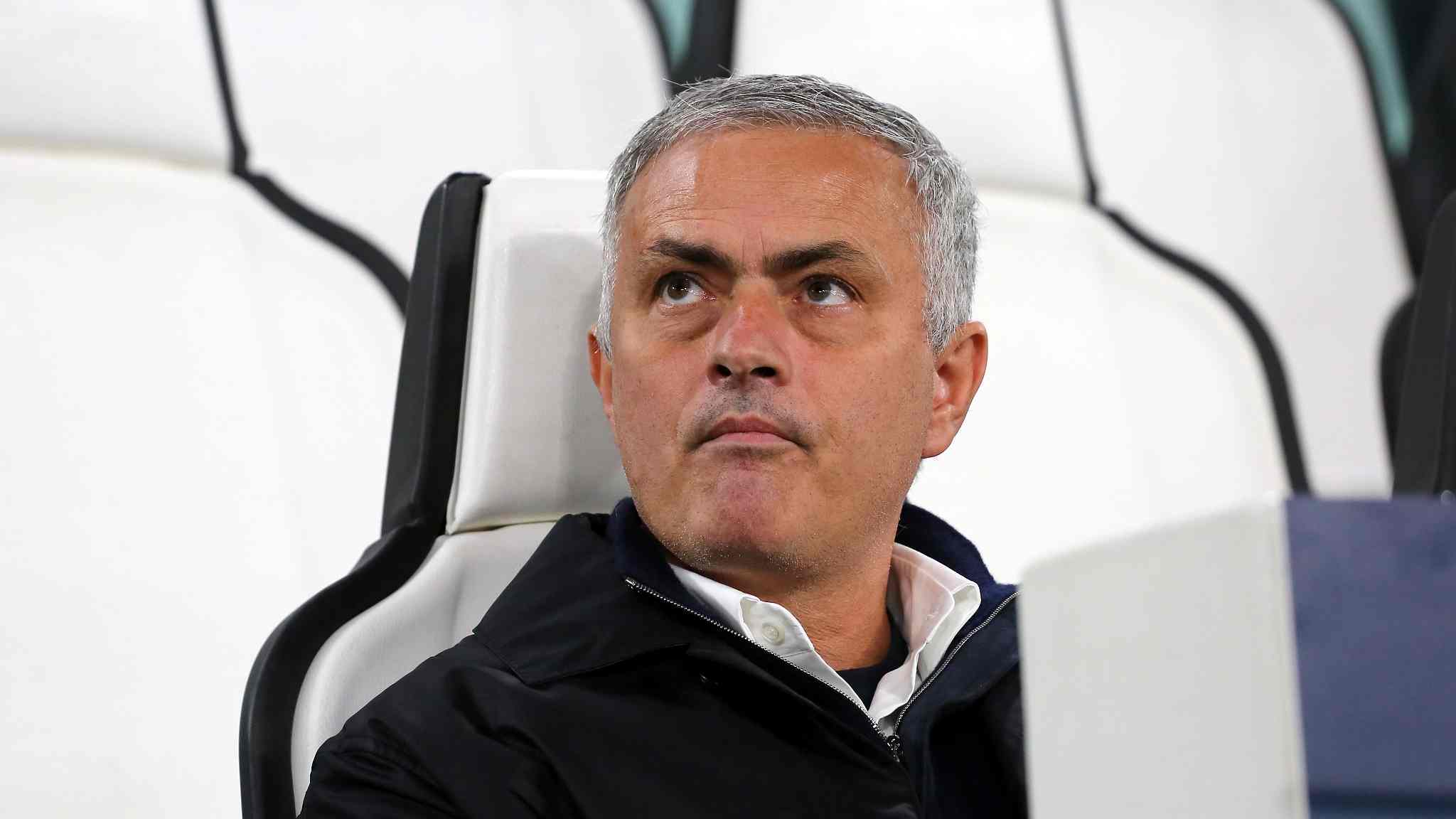Jose Mourinho is undoubtedly one of the most successful managers of his generation, yet the manner in which he often leaves a club after delivering success points to why he may never enjoy universal love and acclaim despite a glittering resume.
However, a third-season miracle goes along with him more than a decade, from FC Porto to Manchester United. The Portuguese
sacked by the club following the team's 3-1 defeat by arch-rivals and Premier League leaders Liverpool at the weekend, leaving the club in sixth place in the standings, 19 points off the top.
His departure after two years at Old Trafford, perceived to be his dream role, marked the first time since his days as Uniao de Leiria coach in 2002 that Mourinho has left a club without winning a domestic league title.
From FC Porto (2002-2004) to Chelsea (2004-2007)
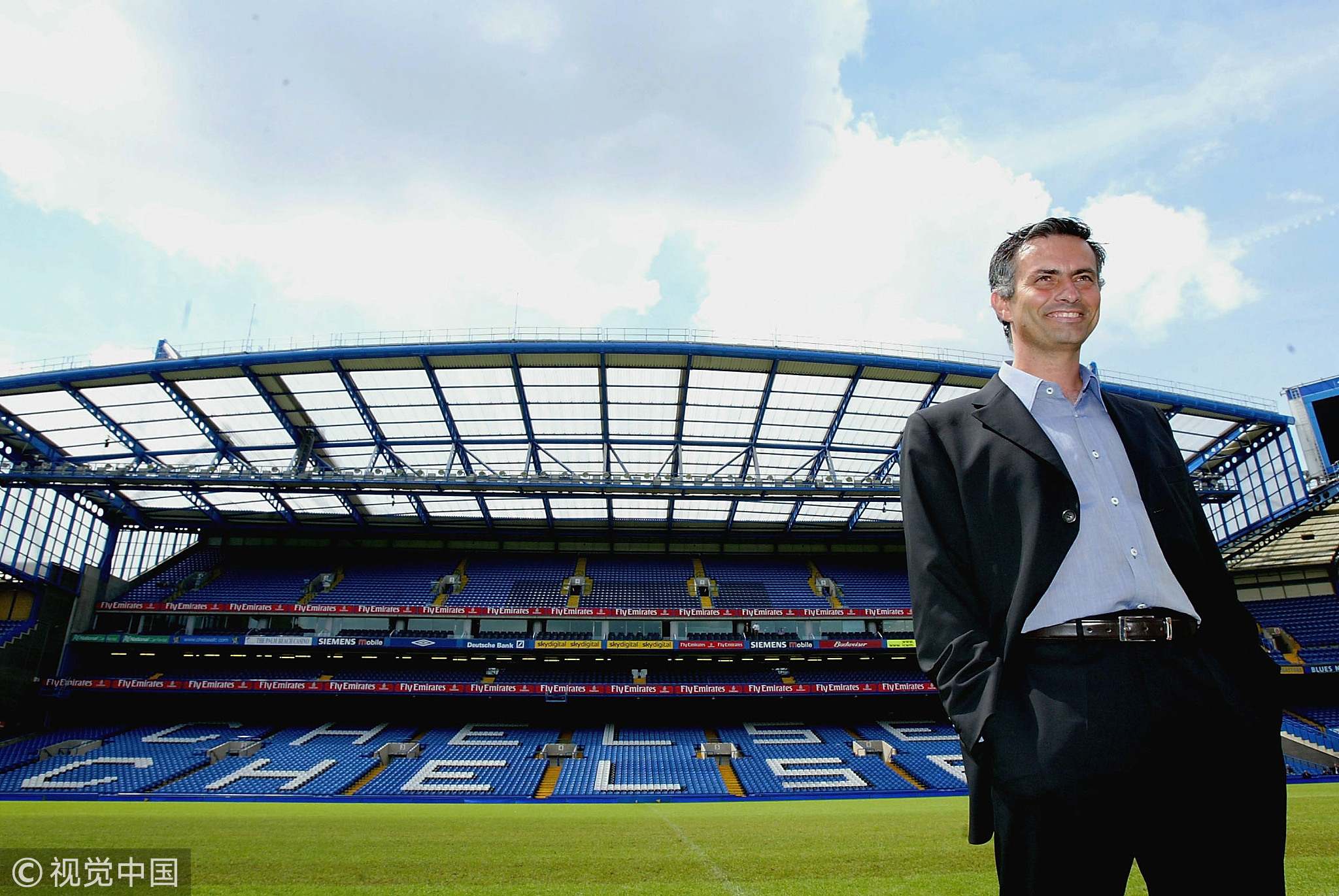
Jose Mourinho poses for photographs after his first appearance at Stamford Bridge in London on June 2, 2004. /VCG Photo
Jose Mourinho poses for photographs after his first appearance at Stamford Bridge in London on June 2, 2004. /VCG Photo
Having made a name for himself by leading Porto to the Champions League crown in 2004, memorably beating Alex Ferguson's United in the semi-finals, Mourinho moved to Chelsea amid a media whirlwind, with many enchanted by his charm.
A duo of Premier League titles and an FA Cup triumph followed, along with three League Cup victories under the self-anointed "Special One".
However, reported power struggles with owner Roman Abramovich and the appointment of Avram Grant as director of football meant Mourinho's authority was not absolute.
The situation came to a head in September 2007 when he left the club “by mutual consent”, following an inauspicious start to the latest Premier League campaign.
Inter Milan: 2008-2010
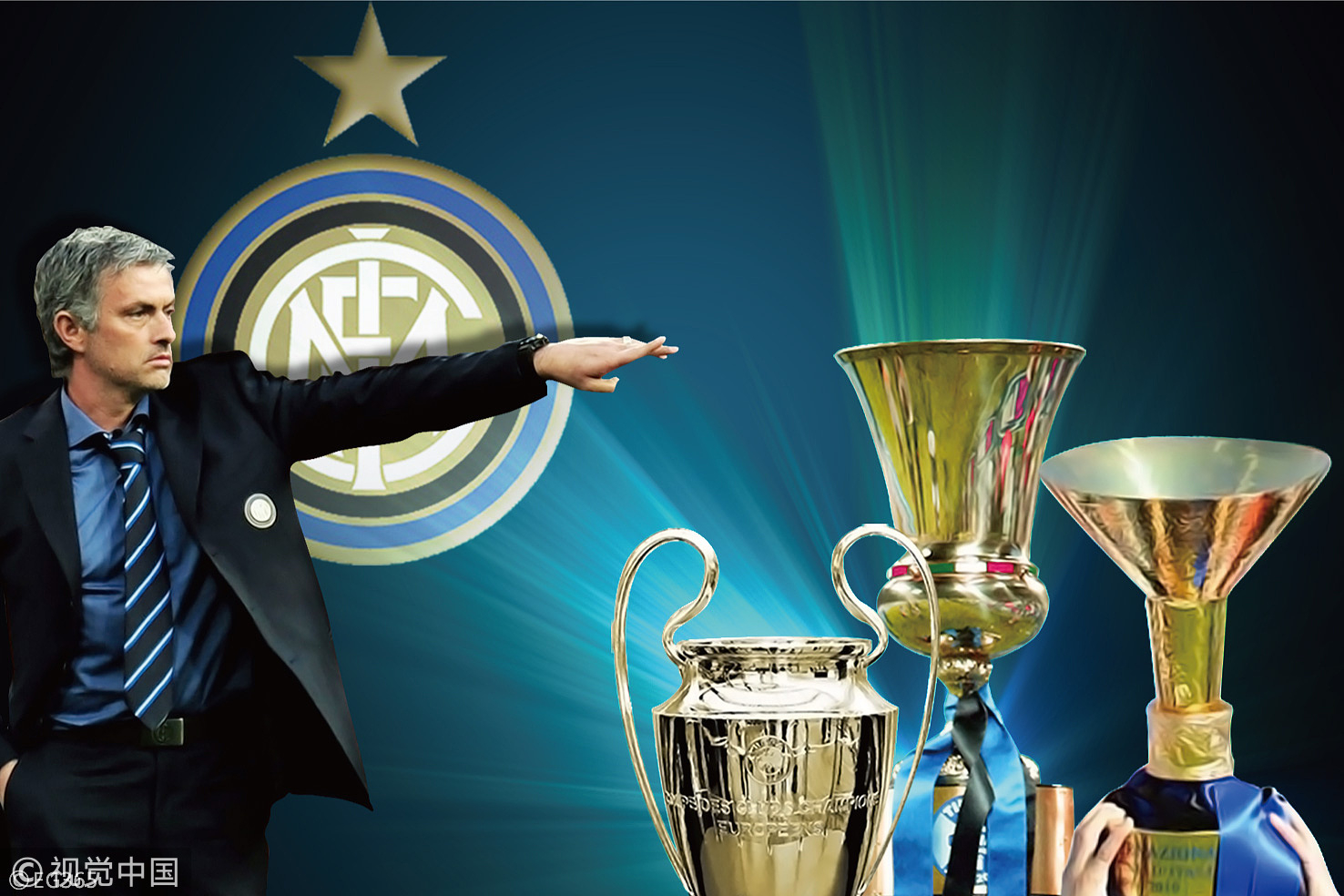
Jose Mourinho claims three titles with Inter Milan, 2010. /VCG Photo
Jose Mourinho claims three titles with Inter Milan, 2010. /VCG Photo
Jose joined Inter Milan in July 2008 and went on to achieve considerable success in a short spell in Italy. Having won Serie A in his first season, Mourinho then led Inter to a remarkable treble in 2010: the league title, the Italian Cup, and the Champions League.
That proved enough for Real Madrid to pay out a record-breaking compensation package for a manager to lure Mourinho to the Santiago Bernabeu.
Real Madrid: 2010-2013
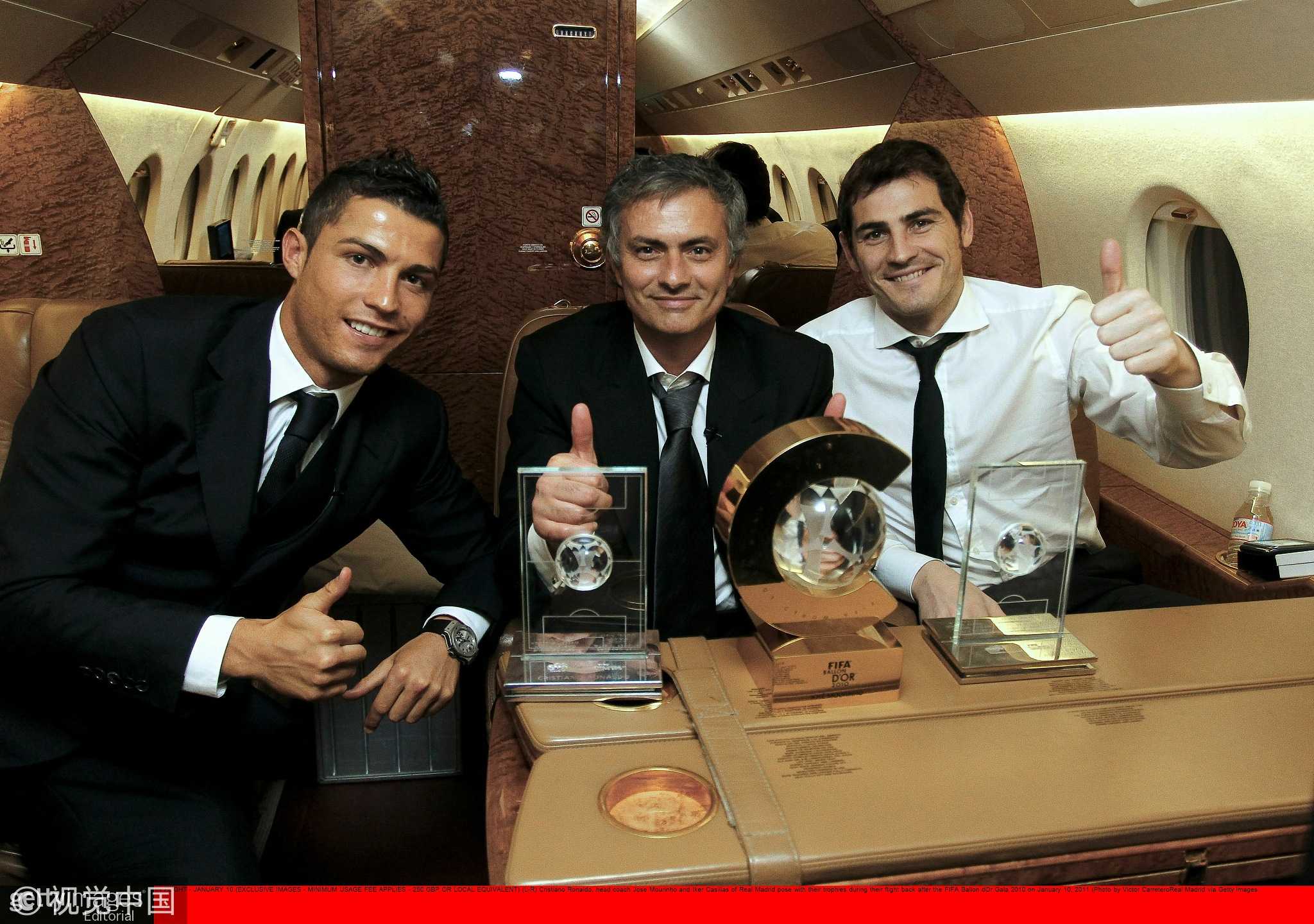
Cristiano Ronaldo (L), Jose Mourinho (C) and Iker Casillas (R) of Real Madrid pose with their trophies during their flight back after the FIFA Ballon d'Or Gala 2010, January 10, 2011. /VCG Photo
Cristiano Ronaldo (L), Jose Mourinho (C) and Iker Casillas (R) of Real Madrid pose with their trophies during their flight back after the FIFA Ballon d'Or Gala 2010, January 10, 2011. /VCG Photo
It was not long until Mourinho experienced the demanding and vociferous nature of leading the La Liga giants, with his style coming in for intense criticism following a 5-0 defeat by fierce rivals Barcelona in his first El Clasico match in November 2010.
Mourinho was to clash on many occasions with the Spanish press, with his relationship deteriorating with the media so much over his three years in Madrid he often resorted to sending his assistants to do news conference duties.
He did lead Madrid to a La Liga title in 2012, in addition to a King's Cup the previous year. But defeat in the King's Cup final of 2013 by city rivals Atletico Madrid, having spent another year in Barca's shadow, led Mourinho to call the 2012-13 season “the worst of my career”.
Once again, Mourinho was out of the door “by mutual agreement”.
Chelsea: 2013-2015
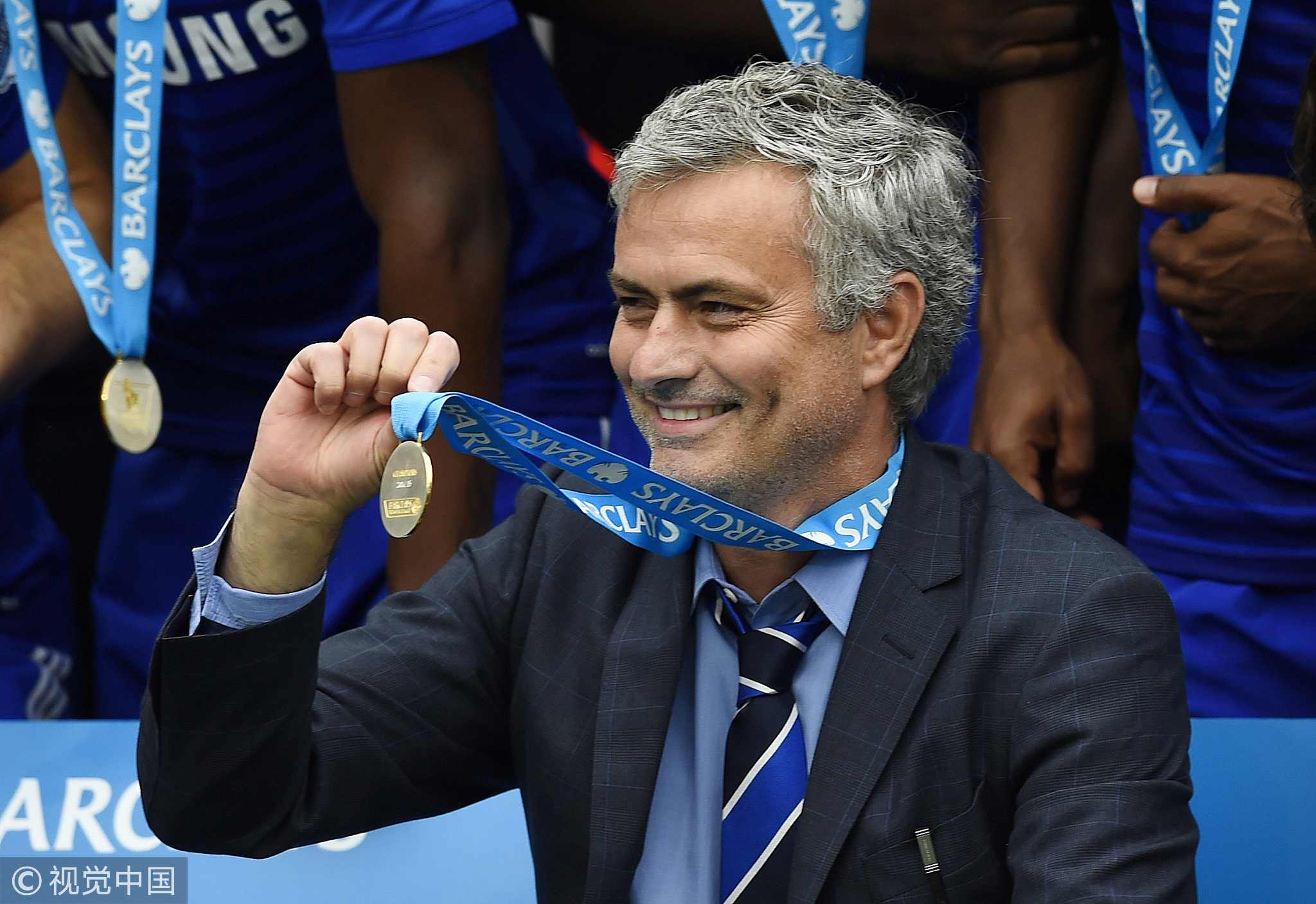
Former Chelsea manager Jose Mourinho holds up his medal after winning the Premier League, May 24, 2015. /VCG Photo
Former Chelsea manager Jose Mourinho holds up his medal after winning the Premier League, May 24, 2015. /VCG Photo
On his return to Chelsea in 2013, he declared himself “the happy one” and set about transforming a Chelsea side that had disappointed the previous year.
He led them to the League Cup and Premier League title in 2015, losing just three league games all season. However, it was not long into his third campaign that the wheels started to come loose.
After a 2-2 draw with lowly Swansea City at Stamford Bridge, Mourinho bizarrely made the decision to publicly deride Chelsea's medical officials who had rushed on to the pitch to treat Eden Hazard who was on the ground.
The incident led to first-team doctor Eva Carneiro, one of those criticized by Mourinho, to leave the club. She later sued Chelsea for constructive dismissal and accused Mourinho of personally insulting her in his native Portuguese.
The fallout coincided with a poor run of form, with reports of a dressing room rift forming because of the Mourinho's style.
After losing nine out of 16 Premier League matches, he left Chelsea for a second time “by mutual consent”.
Manchester United: 2016-2018
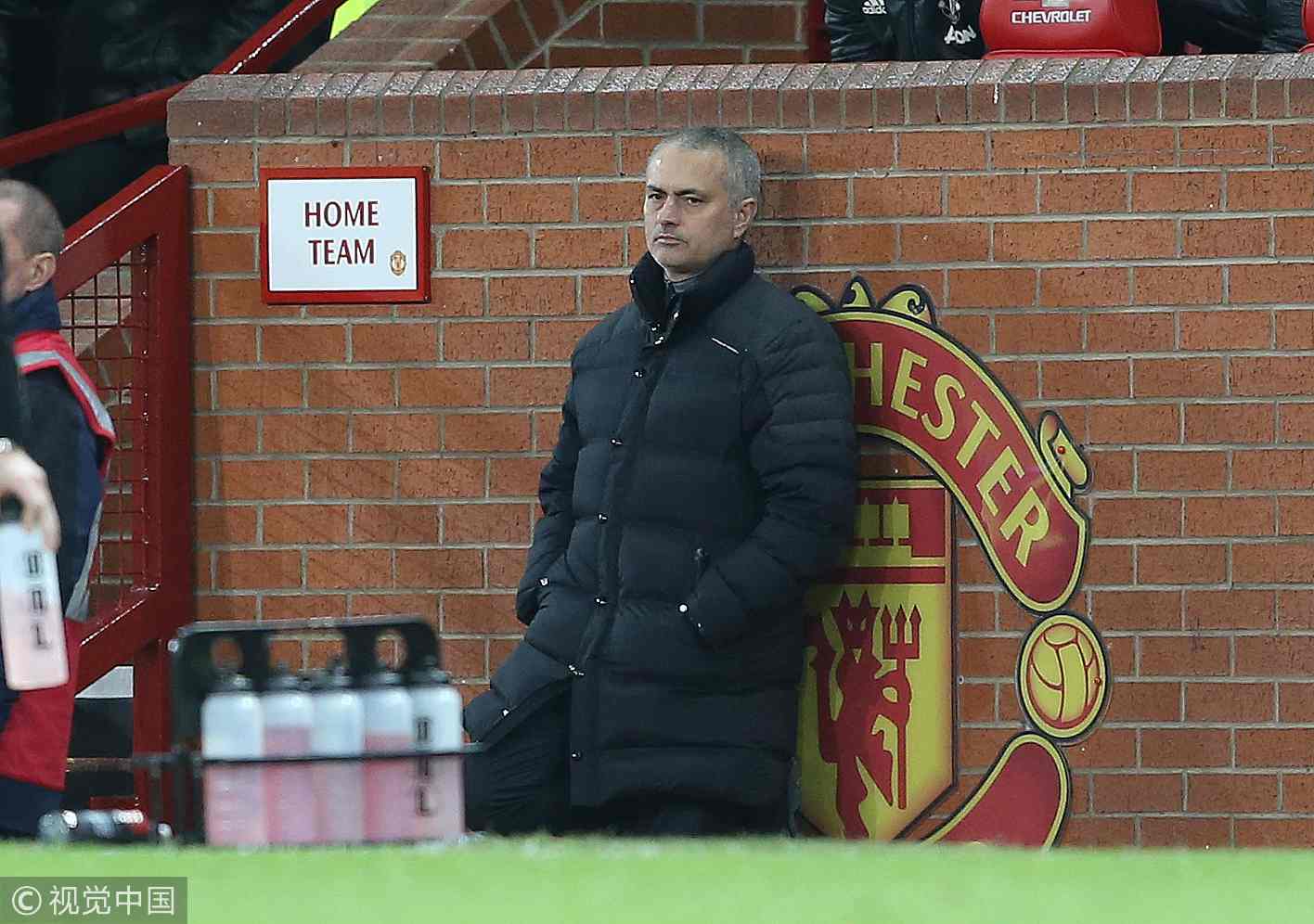
Jose Mourinho looks frustrated during the Premier League match between Manchester United and Hull City at Old Trafford Stadium, February 1, 2017. /VCG Photo
Jose Mourinho looks frustrated during the Premier League match between Manchester United and Hull City at Old Trafford Stadium, February 1, 2017. /VCG Photo
Mourinho seemed the perfect man to restore United's glory days and make them a force in Europe once again.
He did that to an extent with a Europa League crown which qualified United for the Champions League.
But, his later United days will be remembered for his public criticism of players, such as Luke Shaw, reported and repeated rows with Paul Pogba and terse news conferences.
There is no denying Mourinho's genius as a coach, with trophies following in his wake wherever he goes.
However, it is clear that along with his tactical skills, his acerbic personality has made it difficult for him to enjoy sustained relationships. No surprise then he finds himself, once again, the nomadic one.
Source(s): Reuters

